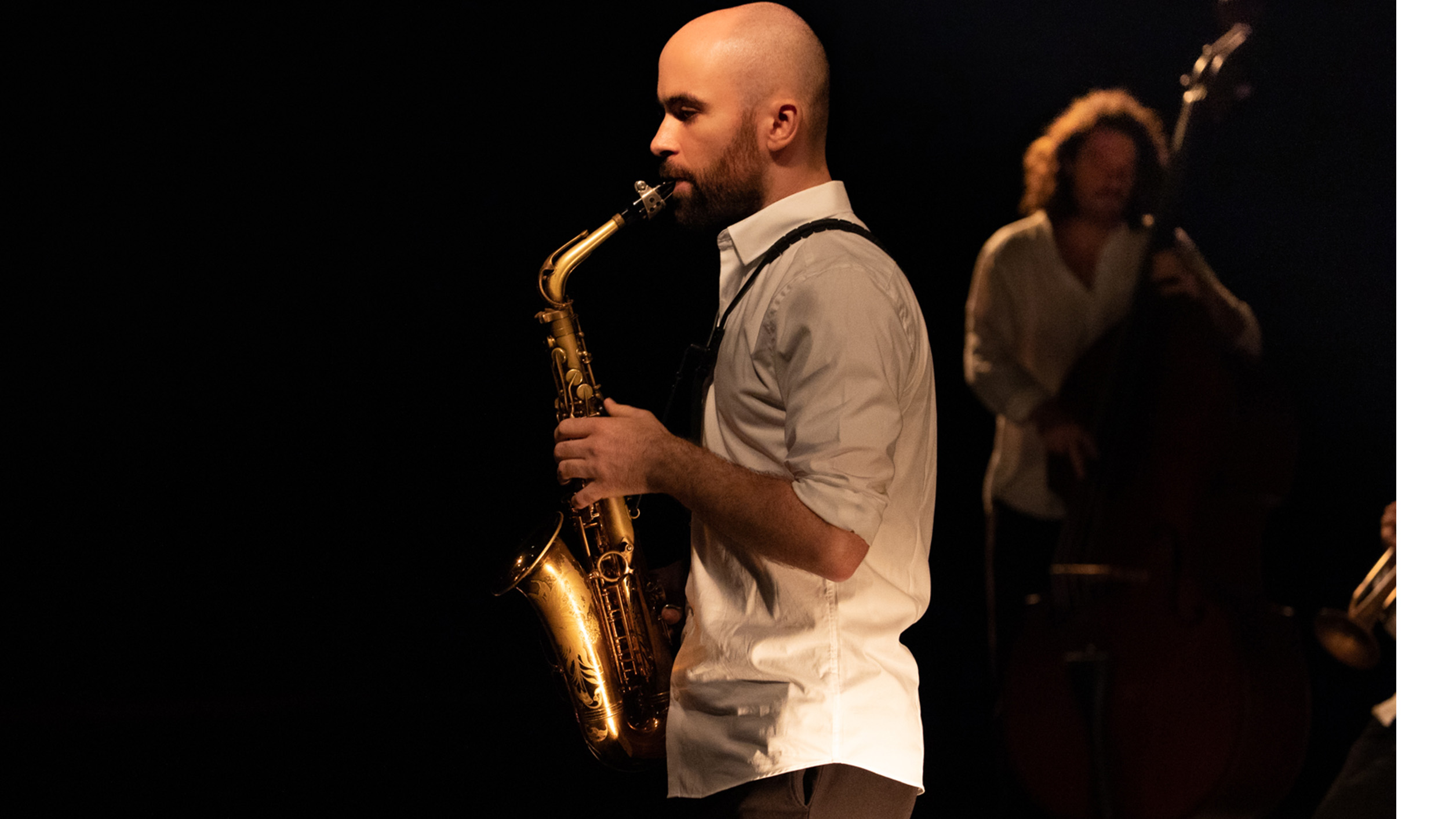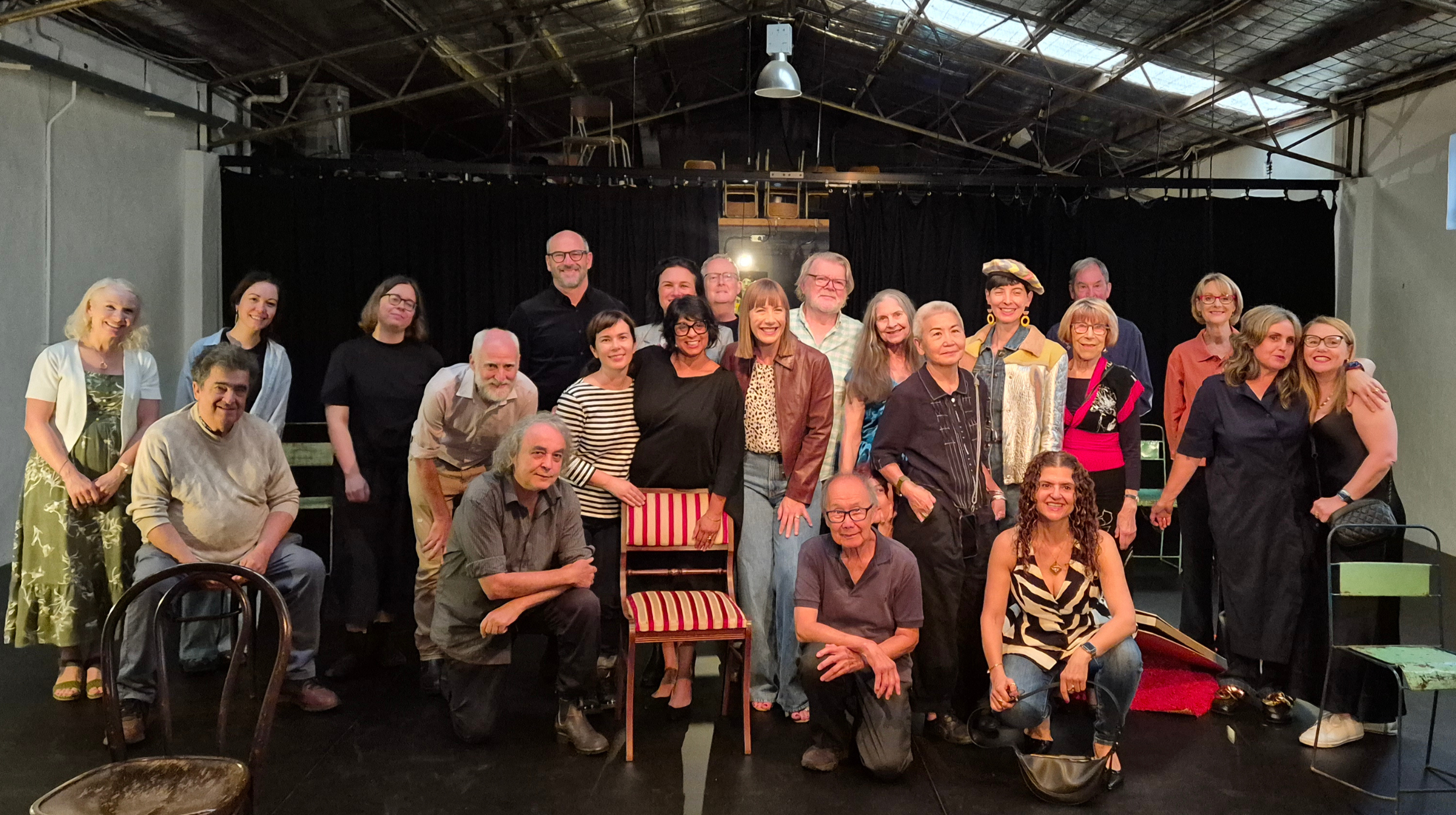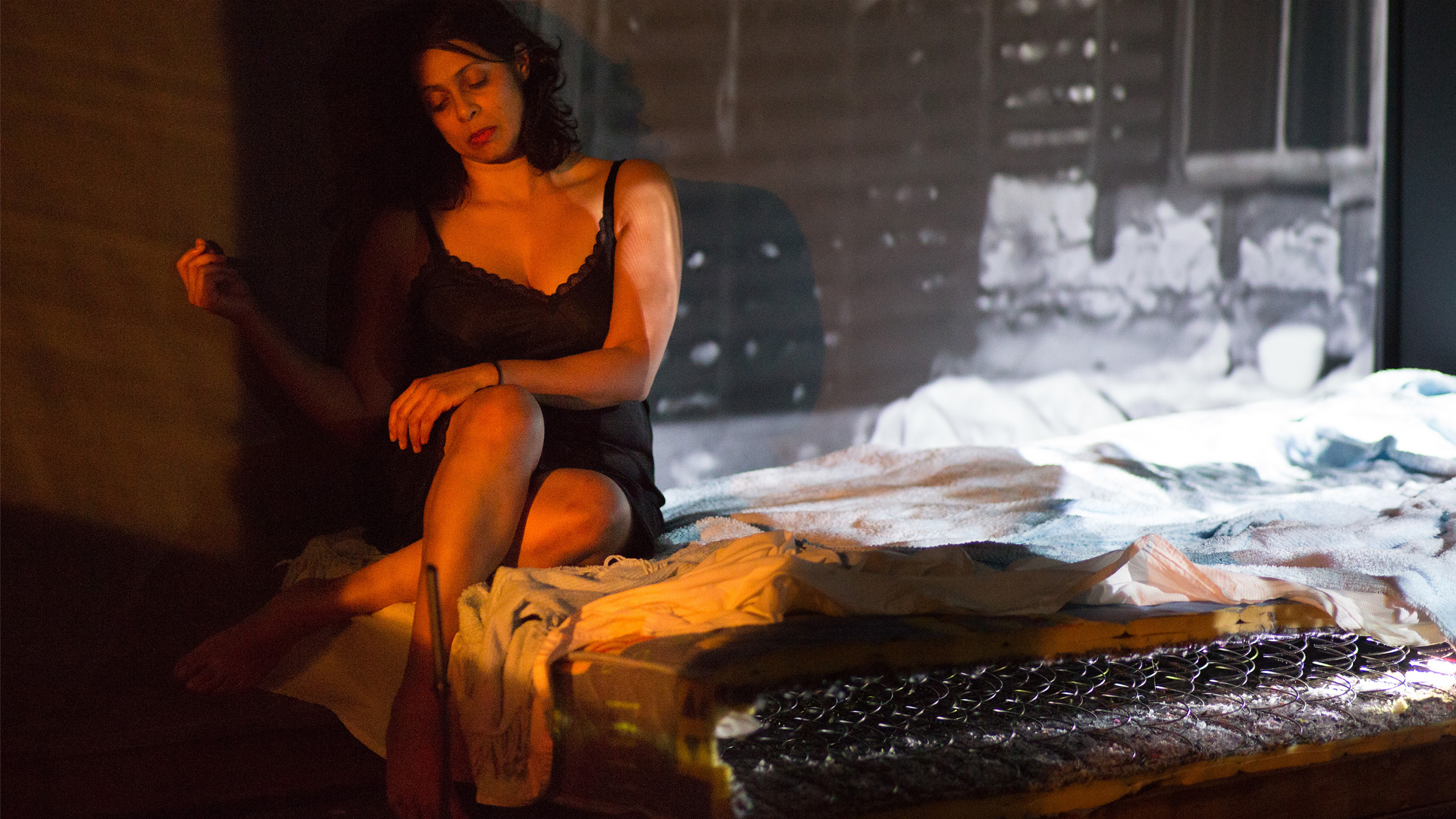
Ensemble in Residence Microfiche – 2
Edited by Anastasia Mortimer
02.11.2023
Phillippa Murphy-Haste, clarinettist and member of the acclaimed ensemble Microfiche, is collaborating with Holly Connor and The Living Room Theatre on The Reckoning. This powerful new work explores structural violence through sound, silence, and embodied performance.
Holly Connor and Phillippa Murphy-Haste from Microfiche are collaborated on LRT’s latest work in development – The Reckoning, which showcased as part of The Flying Nun after a series of workshops in December 2022.
The Reckoning uses the body as a site for exploring structural violence, to expose systems of violence. Microfiche’s compositions stretches the moral imagination to articulate themes of power abuse in institutional complaints processes, to be represented through sound and silence.
How has your experience with Michelle’s compositional methodology influenced or inspired your approach to your creative process or practice?
I love how Michelle has such a different way of thinking about creating music, as somebody coming primarily from a theatre background. She uses words, gesture, sounds, space, and concepts to convey her intentions, and to elicit musical elements from the musicians. Through the Living Room Theatre, I was able to play more with Jacques Emery in a duo format, and this has led to us playing outside the LRT context. Michelle’s evocations grant us the opportunity to think about the music we make in a different way than I was used to. I am trying to sense what she wants musically, interpreting her gesture and language to create. I am also responding to the rhythm of spoken and signed languages. We cycle through several iterations before we reach what is wanted. It’s a fascinating process to be a part of, and I am thrilled to be continuing this work with Michelle and the Living Room Theatre as part of Microfiche.
Does your music tend to comment on societal issues? Does this experience working in theatrical practice provide an opportunity to join a broader conversation in the music world?
Not much of my own music, (in terms of my own compositions), is out in the world for public viewing, but some of my music comments on societal issues. I think most of it doesn’t, although I have thought in the past how best to convey a political message through instrumental music, and usually, I come up with ideas about titles for pieces, or even names of bands that never eventuate. I am quite vocal about my opinions which tend towards the political, so in some ways I feel music is a place for me to move more into the abstract. Another facet of my life is that I am a social worker, and so my outlet for commentary on societal issues largely comes through that work, and through conversations, through protests in various forms. Having said all this, there is a political dimension to almost everything, including instrumental music, whether or not the intentional commentary is there, and I have found myself having many conversations about the politics of who is included/excluded in musical spaces.
The issues of power and abuse of that power within contemporary music are somewhat in the spotlight of late with the release of Raising Their Voices, the report of a recent Music Industry Review which found evidence of systemic harm and discrimination. The report identified the gig economy as posing difficulties for the cultural shift required to make the music industry safer. I would go further and say the gig economy as it exists today is a major factor in creating unsafe workplaces. There is a myth of choice regarding the gig economy. In reality you are more often than not forced into a situation of limited bargaining power, and there is rarely somebody you can report concerns to without fear of repercussions to your work due to the absence of secure employment. This is certainly not unique to the contemporary music industry and permeates the broader gig economy. I am heartened that this conversation is picking up steam. In the recent Federal elections the Greens proposed an Artists Wage based on programs already running in France and Ireland (the French program has been running successfully since 1936!). With more and more talk of things like a Universal Basic Income entering into the public and political consciousness, It would be interesting to see how the future unfolds for artists, and seeing what impact a more secure form of income could have on rates of harassment, if artists had more control over their work. Of course there are many other issues impacting safety, but I have personally felt the precariousness of my work and income to be a major factor influencing power relations and potentially silencing dissent among colleagues. The Reckoning speaks to this issue of silencing, and of ignoring. Ignorance is often not simply ‘not knowing’, but a deliberate decision to look the other way, to close oneself off from listening, from acknowledging, from meaningful action.
I think this cross-pollination between artforms, the Living Room Theatre and Microfiche, offers opportunities for musical engagement in a broader conversation regarding the theme of power. That said, myself and Microfiche will be working towards Michelle’s vision of that conversation, as inspired by Amy Remeikis’ work, On Reckoning. There can hardly be a unified interpretation on these issues with so many performers involved, but what is wonderful about this work is that there is space for interpretation of the multiplicity of perspectives of performers and audience members. My personal hope is that Amy Remeikis’ and Michelle’s work encourages people to question how power is operating in their own lives, and importantly, to question their own power. Remeikis makes the point that while it was difficult for her story to be heard, how much harder must it be when additional intersecting factors of ableism, racism, transphobia and other forms of structural inequalities and discriminations are involved in speaking out against abuse. There are many amazing people out there speaking truth to power who don’t have the same platform as some of the ‘figureheads’ of this movement, and I look forward to delving more into their works as we continue to workshop The Reckoning.
Phillippa Murphy-Haste is a musician living on unceded Gai-mariagal land. She specialises in the performance of clarinets and her music-making collaborations traverse a broad array of styles and formats. Phillippa is interested in music as a connective and healing practice, as well as political act. She has performed with Ólafur Arnalds (Iceland), Joyce Moreno (Brazil), toured with Holly Throsby and Urthboy, and is a member of Microfiche and Sirens Big Band among other ensembles. Her playing is featured in the global top-selling video game Valheim, ABC’s award-winning Unravel True Crime Podcast ‘Snowball’, and many studio albums. She enjoys making music in unusual spaces; carparks, stormwater drains, decommissioned nuclear reactor halls…
Website: www.phillippamurphyhaste.com
Microfiche have recently released their 2nd full-length album, Everything and Other Infinities, to critical acclaim, receiving a 5-star review in Australian Jazz Journal Dingo, and given 4-stars by the Sydney Morning Herald. Find out more here.


